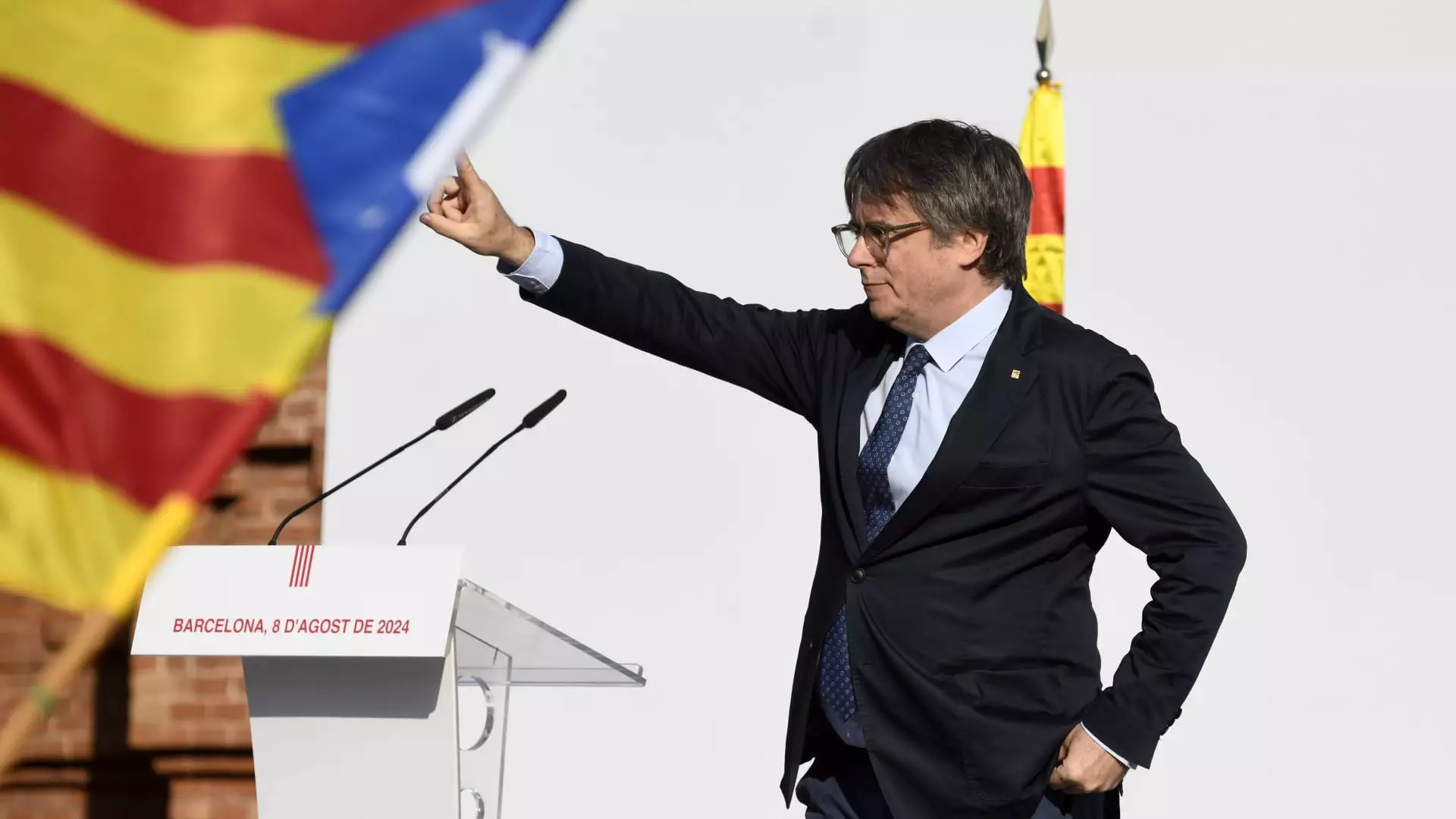Following seven years of self-imposed exile, former Catalan separatist leader Carles Puigdemont made a daring return to Spain, despite a pending arrest warrant. Puigdemont’s defiant act sparked a police manhunt, with pictures and videos capturing the separatist politician addressing a crowd of supporters in Barcelona. He boldly proclaimed, “It was not, it is not, and it will never be a crime to have a referendum,” sending a strong message to his detractors.
After his speech, Puigdemont seemed to vanish into the crowd, evading the heavy police presence in the area. Barcelona’s authorities swiftly launched “Operation Cage,” erecting roadblocks in and around Barcelona in an effort to locate Puigdemont’s vehicle. Through social media updates, Puigdemont taunted his pursuers, questioning his whereabouts and ridiculing media reports on the operation’s progress. Despite the intense manhunt, Puigdemont managed to evade capture, leaving authorities scrambling.
Puigdemont’s chaotic return threw a wrench into the investiture debate for Salvador Illa as Catalonia’s new president, overshadowing the proceedings. The 61-year-old separatist leader, wanted on charges of embezzlement, has become a symbol of the Catalonian separatist movement against Spanish national control. This unexpected turn of events also drew criticism from other political figures in Spain, with Ignacio Garriga of the far-right Vox party labeling it as an “international shame.”
Puigdemont’s reappearance poses a political dilemma for Prime Minister Pedro Sanchez’s administration, which relies on the Junts party’s support to maintain parliamentary majority. The socialist government’s attempt to mend relations with Catalonia could face obstacles due to Puigdemont’s return. The contentious amnesty bill, aimed at pardoning participants in the Catalan independence movement, faced challenges after Puigdemont was excluded from its provisions by a Supreme Court decision.
As the dust settles on Carles Puigdemont’s dramatic return to Spain, the political landscape remains uncertain. His presence continues to be a divisive factor, with implications for both Catalonia’s political future and the stability of Prime Minister Sanchez’s administration. The ongoing standoff between separatist aspirations and national unity highlights the deeply entrenched divisions within Spanish society, underscoring the complexities of regional autonomy and national identity.
Carles Puigdemont’s bold return has reignited tensions and reshaped the political dynamics in Spain. His defiance, evasion of capture, and impact on key political debates underscore the unresolved issues surrounding Catalan independence and the challenges facing the Spanish government. As the situation unfolds, the repercussions of Puigdemont’s actions are likely to reverberate throughout the country, shaping the course of future political developments.

Leave a Reply